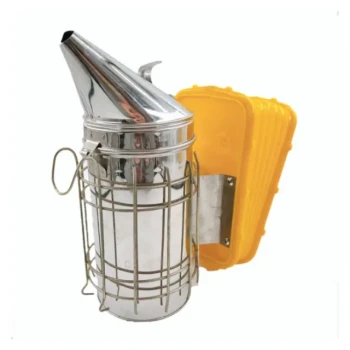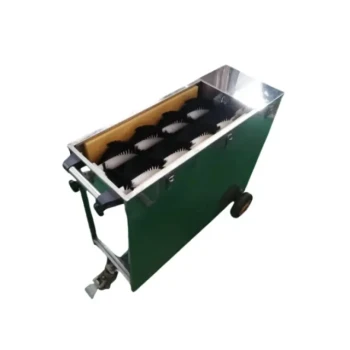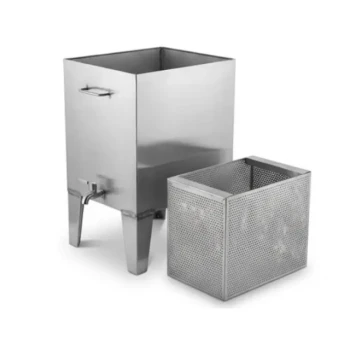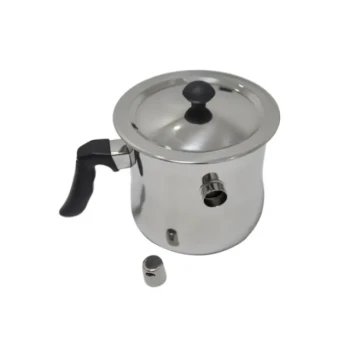The importance of a strong, disease-free honey bee colony before winter cannot be overstated. It is the single most critical factor determining survival. A large, healthy population acts as the hive's living furnace and its immune system, allowing it to generate heat, conserve resources, and fend off opportunistic pests during the long, cold months when it is most vulnerable.
A beekeeper's work in late summer and fall is not about preparing a hive for winter; it's about preparing the bees for winter. The true goal is to raise a generation of healthy, long-lived "winter bees" and provide them with the fuel they need to survive until spring.
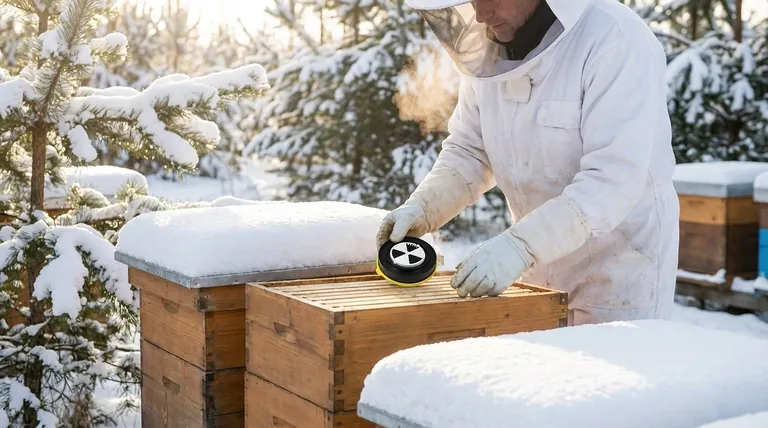
The Physics of Survival: Population as a Furnace
The central challenge for a honey bee colony in winter is not the cold itself, but maintaining a stable temperature for the queen and the colony's core.
How the Winter Cluster Works
Honey bees do not heat the entire hive cavity. Instead, they form a tight cluster and generate heat within it.
Bees on the inside of the cluster vibrate their powerful wing muscles, creating warmth. The bees on the outer layer of the cluster press together, acting as a living blanket of insulation.
Why Population Size is Everything
A large population is exponentially more effective at generating and retaining heat than a small one.
A bigger cluster has a more favorable surface-area-to-volume ratio, meaning it loses heat much more slowly. A small, weak colony simply cannot generate enough heat to survive sustained periods of cold and will eventually perish.
The Enemy Within: Why Health is Non-Negotiable
A large population is useless if the individual bees are sick and weak. The bees that enter winter must live for several months, far longer than their summer counterparts.
The Varroa Mite Catastrophe
The Varroa destructor mite is the single greatest threat to wintering bees.
These parasitic mites feed on the bees' vital fat body tissues, weakening them and shortening their lifespan. More importantly, they transmit a host of deadly viruses throughout the colony.
The Critical Role of "Winter Bees"
The bees raised in the fall are physiologically different. They have developed fat bodies that allow them to live for four to six months, compared to the four-to-six-week lifespan of a summer bee.
If these crucial winter bees are compromised by Varroa mites and the viruses they carry, they will die prematurely. The colony's population will dwindle throughout the winter until it collapses completely.
Understanding the Trade-offs and Common Pitfalls
Successful overwintering requires balancing several competing factors. Misunderstanding these trade-offs is a common source of failure.
The Danger of Late Mite Treatments
Treating for Varroa mites in late fall is often too late. By then, the mites may have already damaged the generation of winter bees.
The treatment might kill the mites, but the colony is already set on a path to failure because its bees are not healthy enough to live until spring. Effective mite control must happen in late summer.
Over-Insulating vs. Proper Ventilation
While insulation can help, sealing a hive too tightly is a fatal mistake. A breathing cluster of bees produces a significant amount of water vapor.
If this moisture cannot escape, it will condense on cold inner surfaces and drip back down onto the bees. Wet bees are dead bees, as the water quickly chills them. Ventilation, often via an upper entrance, is more critical than heavy insulation.
The Misconception of Food Stores
A common error is assuming a hive that feels heavy in the fall has enough food. A large, powerful colony will consume a tremendous amount of honey to fuel its winter cluster.
A mild winter with warm spells can actually be more dangerous than a consistently cold one, as it encourages the bees to be more active and consume their resources faster.
A Framework for Winter Success
Based on the principles of population, health, and hive management, you can prioritize your efforts for the best possible outcome.
- If your primary focus is maximizing survival rate: Prioritize aggressive and timely Varroa mite management in late summer to ensure your winter bees are born healthy.
- If your primary concern is starvation: Ensure each hive has at least 60-80 pounds of honey or equivalent sugar syrup, and consider leaving a solid sugar block as emergency feed.
- If you are in a harsh climate: Focus on mitigating moisture with an upper entrance and use hive wraps primarily as a windbreak, not as an airtight seal.
- If you want to prevent pest intrusion: Install an entrance reducer after the fall nectar flow ends to defend against robbing bees and prevent mice from moving in.
Ultimately, preparing a colony for winter is the culmination of your entire beekeeping season, ensuring your bees have the population, health, and resources they need to thrive.
Summary Table:
| Key Factor | Why It's Critical for Winter Survival |
|---|---|
| Large Population | A bigger cluster generates and retains heat more efficiently, acting as a living furnace. |
| Disease-Free Bees | Healthy 'winter bees' live for months; Varroa mites weaken bees and transmit deadly viruses. |
| Adequate Food Stores | A strong colony needs 60-80 lbs of honey/syrup to fuel the cluster through winter. |
| Proper Ventilation | Prevents deadly condensation; wet bees chill and die quickly. |
Ensure your apiary is prepared for a successful winter. HONESTBEE supplies commercial apiaries and beekeeping equipment distributors with the high-quality, wholesale-focused supplies needed to build strong, healthy colonies. From mite treatments to feeding systems, our products help you raise the robust 'winter bees' essential for survival. Contact our experts today to discuss your winter preparation needs and secure your hive's future.
Visual Guide
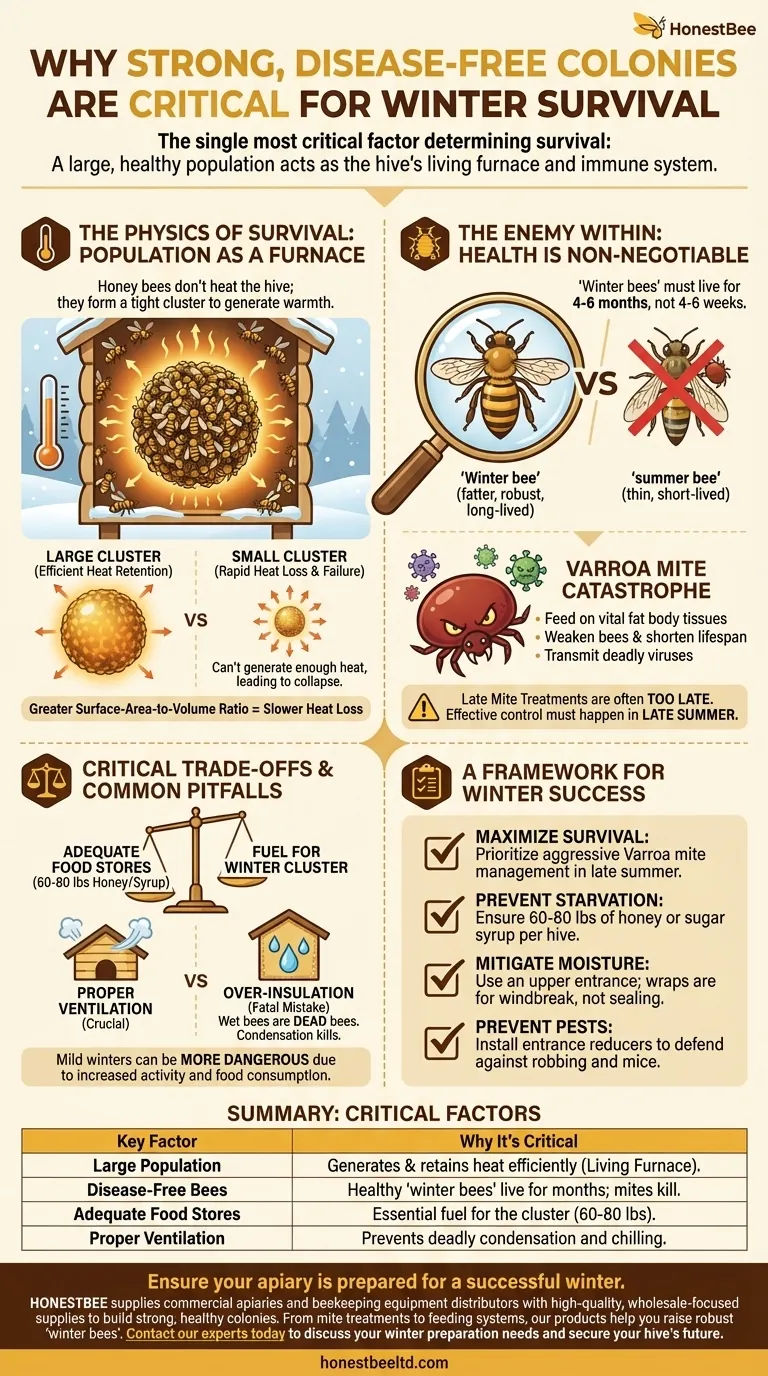
Related Products
- Adjustable Formic and Acetic Acid Dispenser for Bee Mite Treatment
- Varroa Easy Check Mite Tester Kit Counter Alcohol Wash Jar
- Economy Galvanized Beekeeping Honey Bee Smoker for Wholesale
- Professional Bee Smoker with Elongated Spout and Durable Bellows for Beekeeping
- Wooden Queen Bee Excluder for Beekeeping
People Also Ask
- Why does organic beekeeping emphasize non-synthetic chemical treatments? Protect Your Hive Purity & Prevent Resistance
- What is the application method for cardboard-based Varroa mite treatments? Maximize Hive Health with Correct Placement
- What are the common technical treatments used for Varroa mite control in the spring? Optimize Colony Health Today
- How should Varroa mite treatments be integrated into the spring beekeeping schedule? Expert April-May Timing Guide
- What is a beehive's inner cover and how is it used? Essential Guide for Hive Insulation and Ventilation



